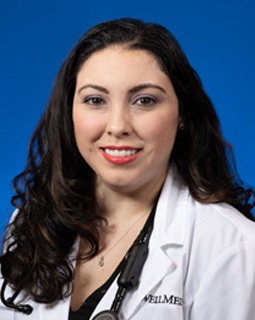
Health care for seasonal travelers
There are an estimated five million adults in the United States who head south in the winter to escape the snowy, icy weather in their home state. Florida and Texas, among others, are two popular choices, hosting the mostly older adults during their winter migration. Here in Florida, they are called snowbirds. In Texas, they are known as winter Texans. In general, they are seasonal travelers.
Because so many of these travelers are older than 55, many have at least a few health conditions that require the regular care of a clinician, even while temporarily living in a different state.
Our clinic takes care of about 100 seasonal travelers, and among those patients, the most common ailments are high blood pressure, diabetes, arthritis and urinary issues.
There are a few ways to keep up with regular check-ins with your clinician when away from home for months at a time.
Some options include:
- Virtual visits: These can be helpful for check-ins or to have your doctor refill medications.
- Standing orders or automatic refills: Your doctor can call in medications ahead of time.
- Seeing a doctor in both states: People with chronic conditions can establish a relationship with a second clinician while in another state during the winter months.
Optimize your health care at your home away from home
Seasonal patients can prepare for being away from home for long periods of time with a little planning.
- Let your doctor know you’ll be away for several months.
- Ask the office to transfer your medical records to the doctor you see while away.
- Check your prescriptions and ask your doctor to provide enough medicine to last the six months you’ll be gone or to call them in to the local pharmacy where you will be staying.
- Be sure to bring your insurance cards, list of medications and supplements, and any other necessary medical information.
People with chronic illnesses need regular check-in visits no matter where they are, so don’t think of your time away as a vacation from health care. Find a doctor through word of mouth, online or through your Medicare plan.
At WellMed we like to see our sicker patients twice a month. We also do a lot of preventive medicine and our physician assistants are available to take care of patients with an urgent care situation.
And even though these patients are only in town about six months of the year, we practice the WellMed model of care. I try to establish rapport with every patient, no matter how long they are in my care.
There’s no special way to take care of snowbirds. The relationship is the same. In fact, some of my patients bring their family members to me.
Other information to keep in mind includes:
Insurance
Medicare will generally cover you while you’re traveling in the United States. However, the type of coverage may vary based on your plan. Medicare Parts A and B cover any doctor who accepts Medicare in the U.S. Part C may not cover any doctor, so it’s helpful to check with your specific plan.
If you’re traveling to another state for more than a few weeks and have Medicare Parts A and/or B, you shouldn’t need to adjust your coverage. If you have Medicare Part C, you may need to adjust your coverage. Additionally, you may need to obtain supplemental insurance.
What to do if you get sick while in another state
If you become ill while you’re away, having a primary care doctor in both locations can be helpful, as it ensures you’re already set up and ready to go. If your medical records have not yet been transferred to the doctor in the state you are visiting, ask the clinic to do so.
Communicating to your doctor ahead of time is best, though, so your winter doctor will have what they need to treat you.
If you have an emergency medical situation and don’t have a primary care doctor, it’s best to seek immediate medical help in your location.
If you get sick while living in your winter location and it’s not an emergency, you should seek care with a primary care physician in the area as a new patient.
Finally, take control of your health by finding a local doctor with WellMed to help you get the care you need. Care should not be difficult to get, no matter where you live, so optimize your well-being and peace of mind by being prepared.
Sources
- Find a Medicare plan. (n.d.). https://www.medicare.gov/plan-compare/#/?year=2025&lang=en
- Interoperability | HealthIT.gov. (n.d.). https://www.healthit.gov/topic/interoperability
- Your coverage options. (n.d.). Medicare. https://www.medicare.gov/basics/get-started-with-medicare/get-more-coverage/your-coverage-options






